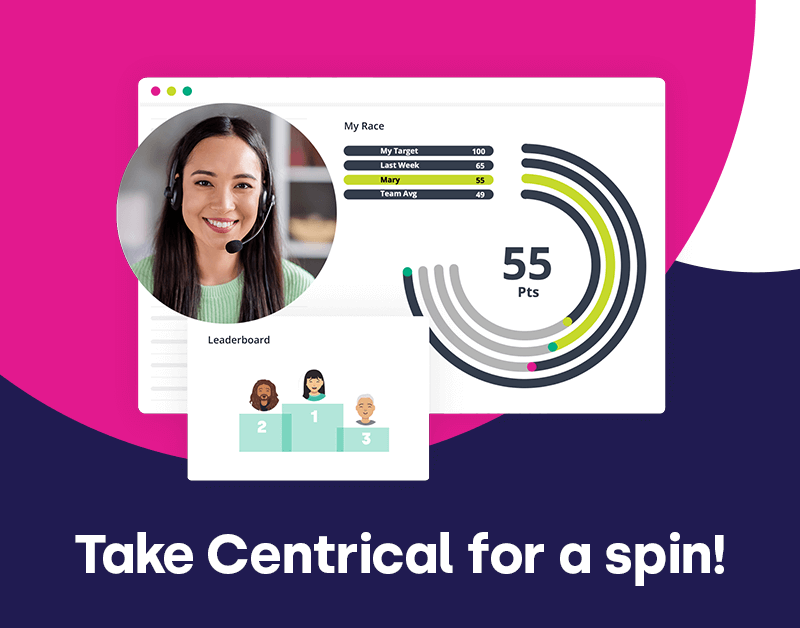Coaching should be central to business operations – it supports talent acquisition and retention, boosts employee engagement, and even improves customer service.
We can count two things to be true. First, it’s an employee’s market right now making it more difficult for companies to attract and retain top talent, so providing an opportunity for employees to grow is critical. And second, professional coaching has been shown to increase employee engagement and improve both the customer and employee experience.
So why is coaching the first thing to get cancelled at the slightest sign of chaos, crises, and critical deadlines?
Companies often have to make sacrifices during challenging times, looking for ways to cut costs, save time, and increase efficiencies just to get by. I’ve seen this time and time again and one of the things I can never get my head around is how coaching is often one of the first things to go and treated as something not “necessary”. This seems particularly prevalent in Contact Centers.
But coaching is necessary. In many situations, coaching might be just a thing that helps turn a company around. Coaching boosts employee engagement, personal growth, and business success—cancelling coaching is the ultimate oxymoron. Coaching should actually be central to business operations—here’s why.
Coaching for Employee Acquisition and Retention
Finding good employees is tough, especially considering the major workplace shifts after the COVID19 pandemic. More people than ever are switching jobs, leaving jobs, and demanding improvements for their jobs. Job mobility, measured by the number of people changing jobs, sits at 9.5% so far in 2022, which is the highest it’s been since 2012.
And some industries are truly suffering, facing massive employee shortages, and struggling to keep up their operations. So, there is a need to better attract and retain employees at companies. Coaching can help with this by supporting both prospective and current employees:
- Prospective employees may be interested in coaching programs that offer them professional development and support. A successful coaching program signals a willingness to care for employees and that they are valued by leadership.
- Current employees benefit from coaching because they feel invested in and are willing to invest back into the company. Coaching also helps with upward career mobility, which further incentivizes employees to stay in their roles.
Mentorship is beneficial to both mentors and mentees. One study showed that 83% of mentors and mentees stated that their experience positively influenced their decision to stay at their organization.
Coaching for Employee Engagement
We all know how important good leaders and managers are for overall job satisfaction. One recent study put a number on it—a whopping 82% of workers said they’d quit their job because of a bad manager. So, leadership matters for employee engagement.
But what makes a good leader? In the past, managers were the ones with the answers, passing down information to their employees. But today, the workplace is radically different—constant change is the norm. In this environment, “Twenty-first-century managers simply don’t (and can’t!) have all the right answers,” as this HBR article states. They go on to describe the new style of management as akin to being a coach. Manager-coaches will:
- Ask open-ended questions that spark ideas and conversation.
- Support professional development and growth.
- Impart some knowledge, but also help others learn for themselves.
- Help employees make decisions in uncertain and challenging situations.
A coach supports their employees personally and professionally, helping create a sense of belonging and purpose. They’ll also pull out the best qualities of the person they’re coaching. And when employees feel valued, purposeful, and successful, they will be more highly engaged in their work which, ultimately, supports the company’s operations.
Coaching for Customer Experience
Not only is coaching good for employees, but it’s good for customers. Take Contact Centers, for example. They can struggle with difficult service level metrics around efficiency and answer time, often expected to manage a high volume of calls in a short period of time. But this can lead to inaccurate answers and frustrated customers. Quality versus quantity is the raging debate in almost any Call Center.
But virtually any customer would rather wait longer on hold and get the right answer than need to call back again. First-call resolution is a key driver of customer satisfaction. And how can employees make sure that happens? Through excellent, high-quality learning and coaching.
Coaches can help employees know what to say and do so they can confidently address problems the first time, resulting in satisfied customers.
It’s simple, really: coaches bring out the best in employees, who can then do excellent work to serve and support customers.
Turn Cancel Culture into a Coaching Culture
Considering these impactful benefits of coaching, cancelling coaching becomes the ultimate oxymoron. Instead of helping boost company operations, cancelling coaching can have detrimental effects on them.
Coaching supports talent acquisition and retention, boosts employee engagement, and improves customer service. So instead of cutting coaching programs to save time or money, companies should double down on them and continue to invest heavily in coaching and mentorship.

About the Author: Luke Jamieson is the Centrical ANZ Regional director and one of the top 25 global influencers and thought leaders on customer experience and employee engagement. His rebellious, unconventional approaches have been attributed to him earning such titles. But it is his combination of vision, high energy, audacious creativity, and mischievous execution that makes him an inspiring and refreshing speaker, podcaster, and blogger.
Engage and motivate your frontline teams
Improve performance with an AI-powered digital coach
Deliver world class CX with dynamic, actionable quality evaluations
Boost performance with personalized, actionable goals
Nurture employee success with the power of AI
Listen and respond to your frontline, continuously
Drive productivity with performance-driven learning that sticks
Drive agent efficiency, deliver client results
Keep tech teams motivated and proficient on products and services while exceeding targets
Maintain compliance while building customer happiness and loyalty
Enlighten energy teams to boost engagement
Engage, develop, and retain your agents while driving better CX
Improve the employee experience for your reservations and service desk agents








 Madeleine Freind
Madeleine Freind
 Natalie Roth
Natalie Roth Linat Mart
Linat Mart












 Doron Neumann
Doron Neumann Gal Rimon
Gal Rimon Daphne Saragosti
Daphne Saragosti Ella Davidson
Ella Davidson Ariel Herman
Ariel Herman Ronen Botzer
Ronen Botzer